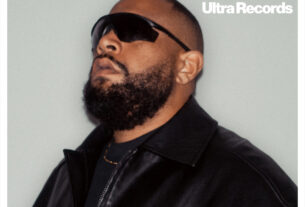Vimeo Triumphs in Long-Running Legal Battle Against Universal Music Group
Video-sharing giant Vimeo has achieved a significant legal victory in its ongoing 16-year battle with Universal Music Group (UMG) and its affiliated labels.
On January 13, the US Second Circuit Court of Appeals ruled in favor of Vimeo, dismissing copyright infringement claims from major record labels, including Capitol Records and several EMI subsidiaries, as reported by Reuters.
The lawsuit originated in 2009 and focused on Vimeo’s popular channel, “Lip Dub Stars”, where users shared videos set to copyrighted music. Record labels contended that Vimeo neglected clear indicators of copyright violations when their employees came across recognizable songs on the platform.
Additional plaintiffs in the case included Caroline Records, Virgin Records America, and Stone Diamond Music Corporation.
The appellate court upheld a prior ruling that Vimeo is protected under the Digital Millennium Copyright Act’s (DMCA) “safe harbor” provisions. These provisions, enacted during the Clinton administration, typically safeguard internet providers and intermediaries from liability for user-generated content if they appropriately respond to takedown requests.
“The district court rejected Plaintiffs’ argument that Vimeo had actual or red flag knowledge of the infringement or the right and ability to control the infringing activity, and therefore lost entitlement to the safe harbor,” stated Judge Pierre N. Leval of the US Second Circuit Court of Appeals.
The ruling emphasized that “Vimeo was entitled to the DMCA’s safe harbor because, although there was evidence that Vimeo employees had interacted with videos containing infringing content, there was insufficient evidence to prove that it would have been obvious to those employees that the content of the videos was neither authorized by the rightsholder nor fair use.”
The labels could not demonstrate that “Vimeo had sufficient ‘right and ability to control’ within the meaning of the statute to lose entitlement to the safe harbor,” according to US Circuit Judge Pierre N. Leval, with Judges Barrington D. Parker and Sarah A.L. Merriam concurring.
Judge Leval noted that even if unauthorized use of music might seem apparent to some, “that would not make it obvious that a particular video lacked authorization to use the music.”
The court also rejected the labels’ claim that Vimeo exerted substantial control over user content by promoting or demoting posts. The judges stated that Vimeo’s content moderation affected only a minimal percentage of user uploads.
“For example, in 2012, 43,000 new videos per day were posted on Vimeo, which annualized to over 15 million new videos. During that year, Vimeo had only 74 employees. Apart from how minimal an intrusion it is for a staff member to select a video to receive an indication of approval, the number of videos that 74 staff members could have evaluated and emphasized amounted to no more than an insignificant percentage of those posted,” the ruling elaborated.
“Highlighting selected videos by giving them a sign of approval or showcasing them on a Staff Picks channel (or conversely, demoting them) did not restrict the freedom of users to post any videos they wished,” the judges concluded.
The court determined that denying Vimeo DMCA protection would impose “unsustainable costs” on the company.
In response to the ruling, Vimeo expressed satisfaction, with a spokesperson stating that the decision “ensures Vimeo can continue empowering innovation and artistic expression while respecting intellectual property rights.”
The decision also confirmed that DMCA protections extend to recordings made both before and after 1972, following a previous Second Circuit ruling that overturned a state court decision in a case involving Grooveshark and Universal Music Group.
Grooveshark, once notorious as a leading copyright-infringing audio streaming site, ceased operations in 2015 after a lawsuit loss to Universal Music.





